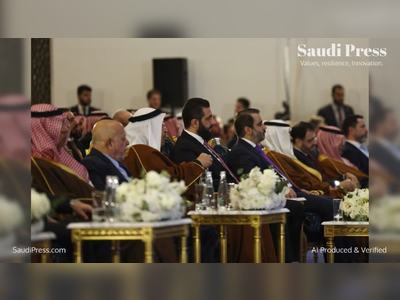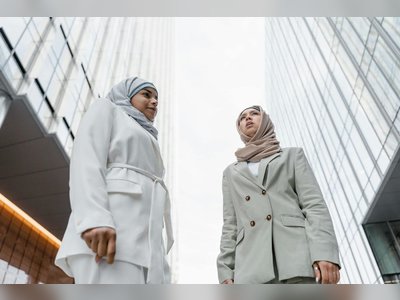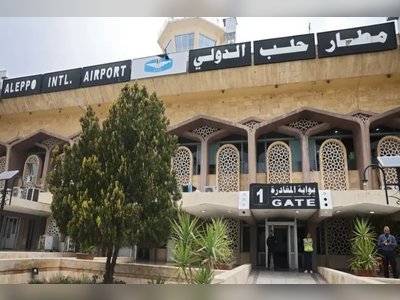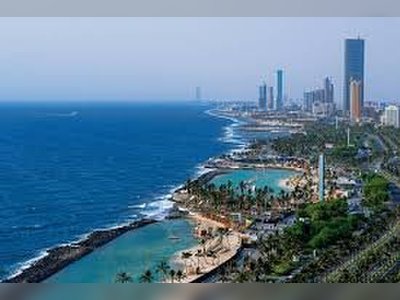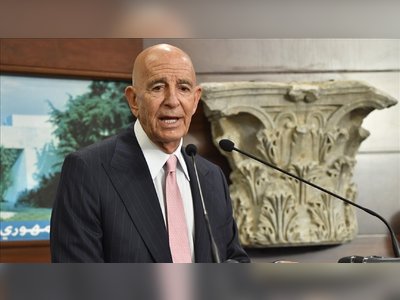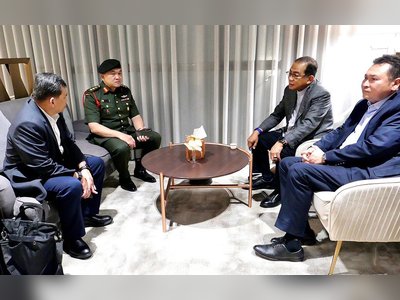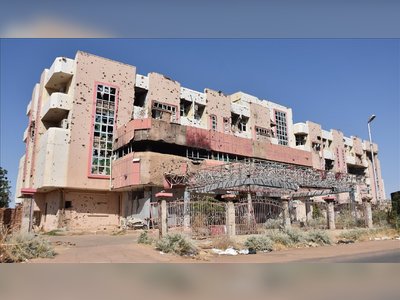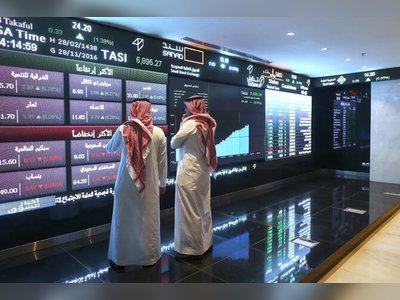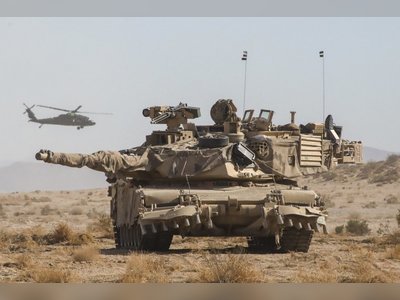
Why the CIA doesn't spy on the UAE
And yet, in a highly unusual practice, the U.S. Central Intelligence Agency (CIA) does not spy on the UAE’s government, three former CIA officials familiar with the matter told Reuters, creating what some critics call a dangerous blind spot in U.S. intelligence.
The CIA’s posture isn’t new. What’s changed is the nature of the tiny but influential OPEC nation’s intervention across the Middle East and Africa - fighting wars, running covert operations and using its financial clout to reshape regional politics in ways that often run counter to U.S. interests, according to the sources and foreign policy experts.
The CIA’s failure to adapt to the UAE’s growing military and political ambitions amounts to a “dereliction of duty,” said a fourth former CIA official.
The U.S. intelligence community doesn’t completely ignore the UAE. The NSA conducts electronic surveillance - a lower-risk, lower-reward kind of intelligence-gathering - inside the UAE, two sources with knowledge of the agency’s operations told Reuters. And the CIA works with UAE intelligence in a “liaison” relationship that involves intelligence-sharing on common enemies, such as Iran or al-Qaeda.
But the CIA does not gather “human intelligence” - the most valuable and difficult-to-obtain information - from UAE informants on its autocratic government, the three former CIA officials told Reuters.
The CIA, the NSA and the White House declined to comment on U.S. espionage practices in the UAE. The UAE’s foreign ministry and its U.S. embassy did not respond to requests for comment.
The CIA’s hands-off practice - which hasn’t been previously reported in the media - puts the UAE on an extremely short list of other countries where the agency takes a similar approach, former intelligence officials said. They include the four other members of an intelligence coalition called “The Five Eyes”: Australia, New Zealand, the United Kingdom and Canada.
CIA spies gather human intelligence on almost every other nation where the United States has significant interests, including some key allies, according to four former CIA officials.
The closest contrast to the UAE may be Saudi Arabia - another influential U.S. ally in the Middle East that produces oil and buys U.S. weapons. Unlike the UAE, Saudi Arabia is often targeted by the CIA, according to two former CIA officials and a former intelligence officer for a Gulf nation. Saudi intelligence agents have caught several CIA agents trying to recruit Saudi officials as informants, the sources said.
The Saudi intelligence agencies do not complain publicly about CIA spying attempts but privately meet with the agency’s station chief in Riyadh to ask that the CIA officers involved be quietly ejected from the country, said the former intelligence official for a Gulf nation.
Robert Baer, a former CIA agent and author, called the lack of human intelligence on the UAE “a failure” when told about it by Reuters. U.S. policymakers, he said, need the best available information on the internal politics and family feuds of Middle Eastern monarchies.
“If you pride yourself on being a world service, it’s a failure,” he said. “The royal families are crucial.”
‘ROGUE STATE’
A former official in U.S. President Donald Trump’s administration said the lack of UAE intelligence is alarming because the desert monarchy now operates as a “rogue state” in strategic nations such as Libya and Qatar and further afield in Africa.
In Sudan, the UAE spent years and billions of dollars propping up long-serving Sudanese President Omar Hassan al-Bashir, then abandoned him and supported the military leaders who overthrew him in April. The new government’s security forces in June killed dozens of protesters who were pushing for civilian rule and elections. The UAE has also built military bases in Eritrea and the self-declared Republic of Somaliland.
“You turn over any rock in the horn of Africa, and you find the UAE there,” the former Trump administration official said.
The UAE has asserted itself as a financial and military power in areas “far from its immediate neighborhood,” said Sarah Leah Whitson, executive director of the Middle East and North Africa Division of Human Rights Watch.
“Whether Somalia, or Eritrea or Djibouti, or Yemen, the UAE is not asking for permission,” she said.
In Yemen, the UAE and Saudi Arabia have led a coalition of nations fighting Iran-aligned Houthi rebels, but the UAE recently started drawing down troops amid international criticism over air strikes that have killed thousands of civilians and a humanitarian crisis that has pushed millions to the brink of famine. The U.S. Congress recently passed resolutions to halt arms sales to Saudi Arabia and the UAE, but President Trump vetoed the measures.
The UAE government has spent $46.8 million on U.S. lobbyists since 2017, according to the Center for Responsive Politics.
One of the three former CIA officials with knowledge of the agency’s UAE operations said intelligence on its government is needed for reasons beyond its regional interventions. The UAE is also forging closer ties with Russia – including a wide-ranging strategic partnership signed last year to cooperate on security, trade and oil markets – and with China, where Sheikh Mohammed bin Zayed, the crown prince of Abu Dhabi and the UAE’s de facto ruler, last month made a three-day visit for a UAE-China economic forum.
Some national security experts, however, continue to see enough alignment between U.S. and UAE interests to explain the continued lack of spying.
“Their enemies are our enemies,” said Norman Roule, a retired CIA official, referring to Iran and al-Qaeda. “Abu Dhabi’s actions have contributed to the war on terror, particularly against al-Queda in Yemen.”
FEAR OF DEMOCRACY, POLITICAL ISLAM
The Abu Dhabi crown prince controls the foreign policy of the UAE, a federation of desert emirates, with a small group of advisors. He installed his U.S-educated brother, Sheikh Tahnoon bin Zayed, a mixed-martial arts buff who owns a stable of Arabian race horses, as his National Security Advisor. His son, Sheikh Khalid bin Mohammed, runs the country’s sprawling internal surveillance network.
The UAE’s rising interventionism dates to 2011. Mass protests demanding democracy across the region during the so-called Arab Spring sparked rising concern within the UAE palace elite over the preservation of its own power, said Jodi Vittori, a former Air Force Intelligence officer now with the Carnegie Foundation for International Peace.
Like many Gulf royals, UAE leaders viewed the demonstrations as a threat to monarchic rule in the region. They have since fought the rise of political Islam and the Muslim Brotherhood, the international Islamic party that briefly rose to power in Egypt after the 2011 protests that ousted President Hosni Mubarak. The UAE cut off financial support to Egypt when brotherhood candidate Mohamed Mursi was elected president in 2012, and then resumed sending billions in aid after Egypt’s army ousted Mursi a year later.
Vittori, of the Carnegie Foundation, acknowledged some continuing shared goals between the U.S. and UAE governments but said those interests are diverging as the UAE’s monarchy focuses on self-preservation.
“When the goal is regime-survival at all costs,” she said, “it’s not one that’s going to align with the U.S.”
